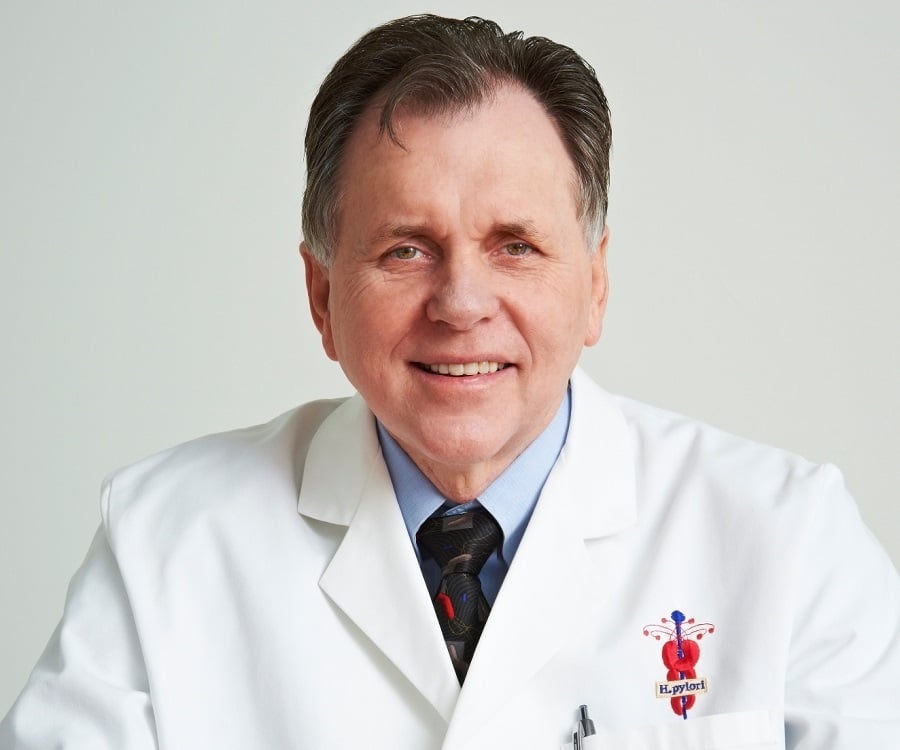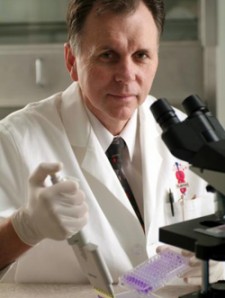Barry Marshall
Barry James Marshall ( born September 30, 1951 in Kalgoorlie, Australia) is an Australian physician and was awarded the 2005 Nobel Prize for Physiology and Medicine.
Life
After studying at the University of Western Australia ( UWA ) Marshall was employed at the Royal Perth Hospital. In 1986 he moved with his family temporarily to the U.S. to when he began his teaching career at the University of Virginia. Then Marshall came back as a Professor of Clinical Microbiology at the University of Western Australia in Perth.
Barry Marshall is married to wife Adrienne and has four children.
Career
The microbiologist Marshall is known for evidence that Helicobacter pylori bacteria are the cause of most stomach ulcers. He refuted so that the decades-long assumption that ulcers were caused mainly by stress, spicy foods, etc..
The Helicobacter pylori theory was initially rejected by many scientists, who were of the opinion that bacteria in the acidic environment of the stomach acid could not survive. In order to prove the contrary, Marshall undertook in 1984 a self- test and drank a test tube of bacteria. A short time later he developed a severe gastritis, which he cured with antibiotics.
In 1995 he received the Albert Lasker Award for Clinical Medical Research in 1996 and a Gairdner Foundation International Award. In 1997 he was awarded the Paul Ehrlich and Ludwig Darmstaedter Prize, 1998 with the AH Heineken Prize for Medicine and the Buchanan Medal of the Royal Society, the 2002 Keio Medical Science Prize. In December 2005, he was with John Robin Warren received the Nobel Prize in Physiology or Medicine for the discovery of Helicobacter pylori.








